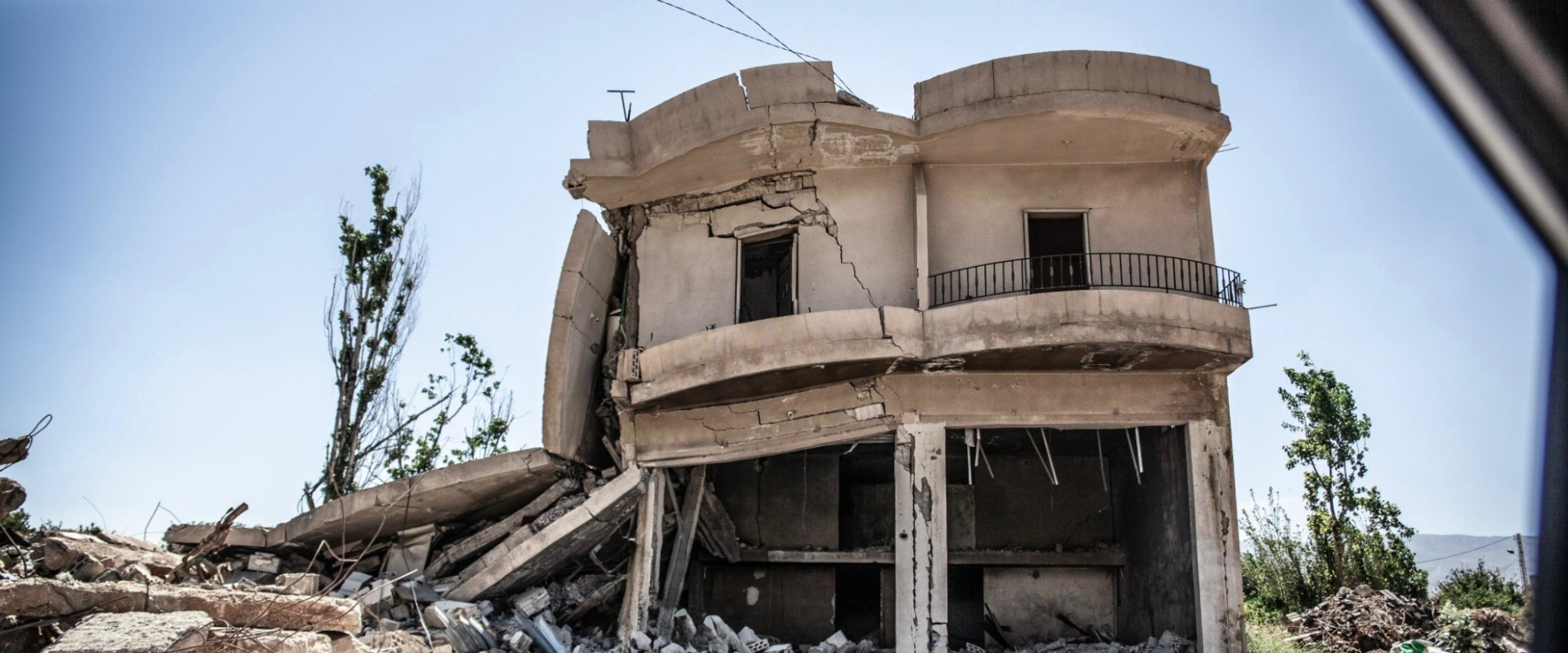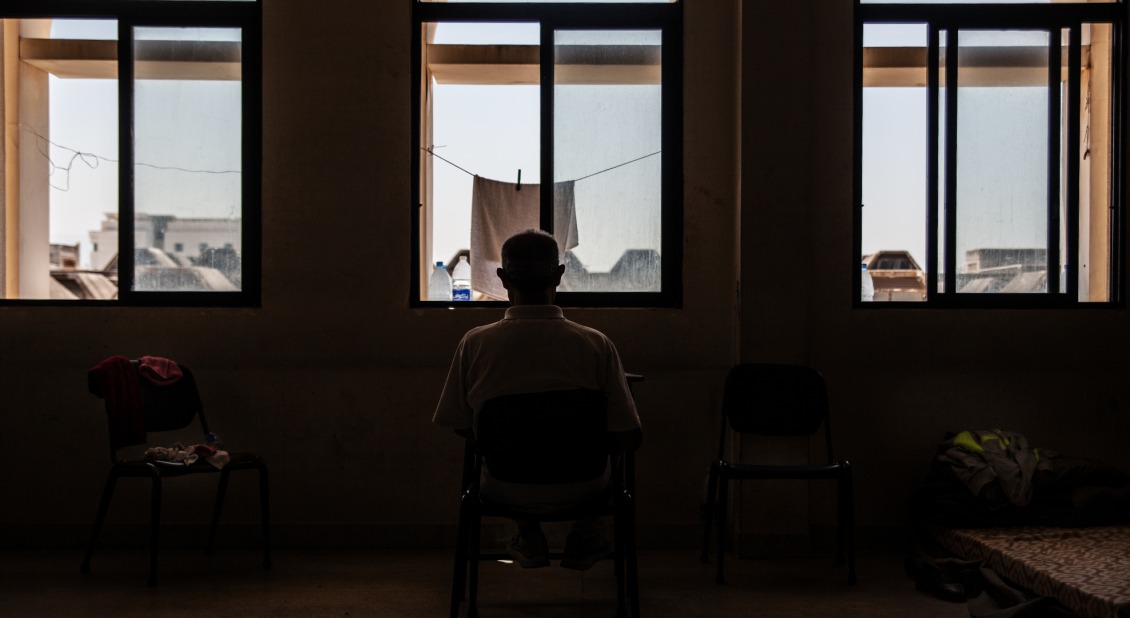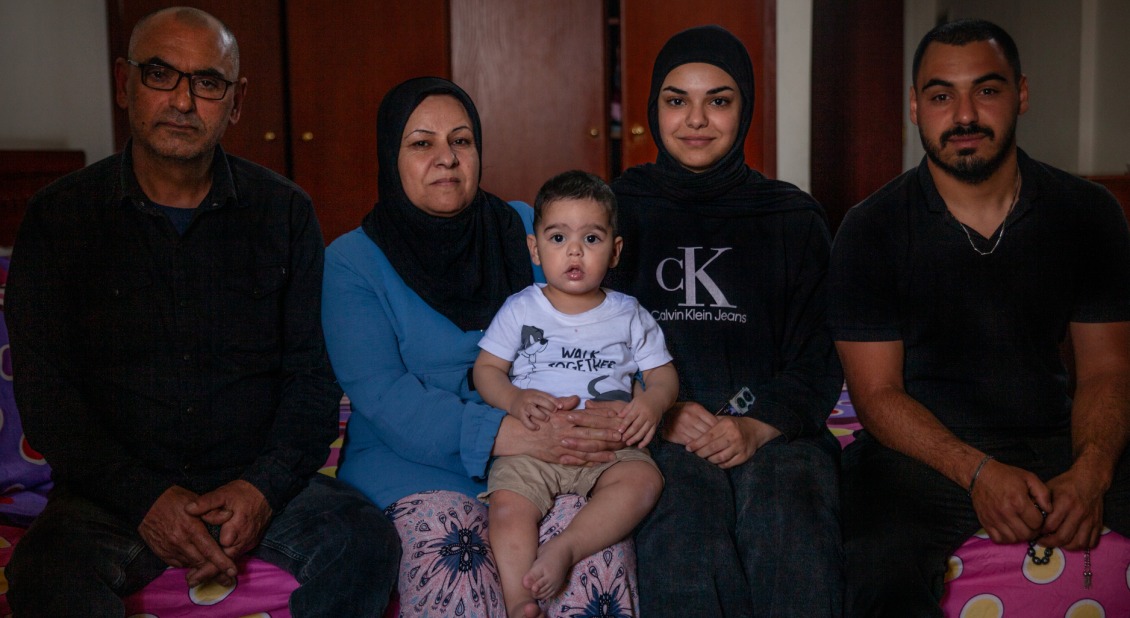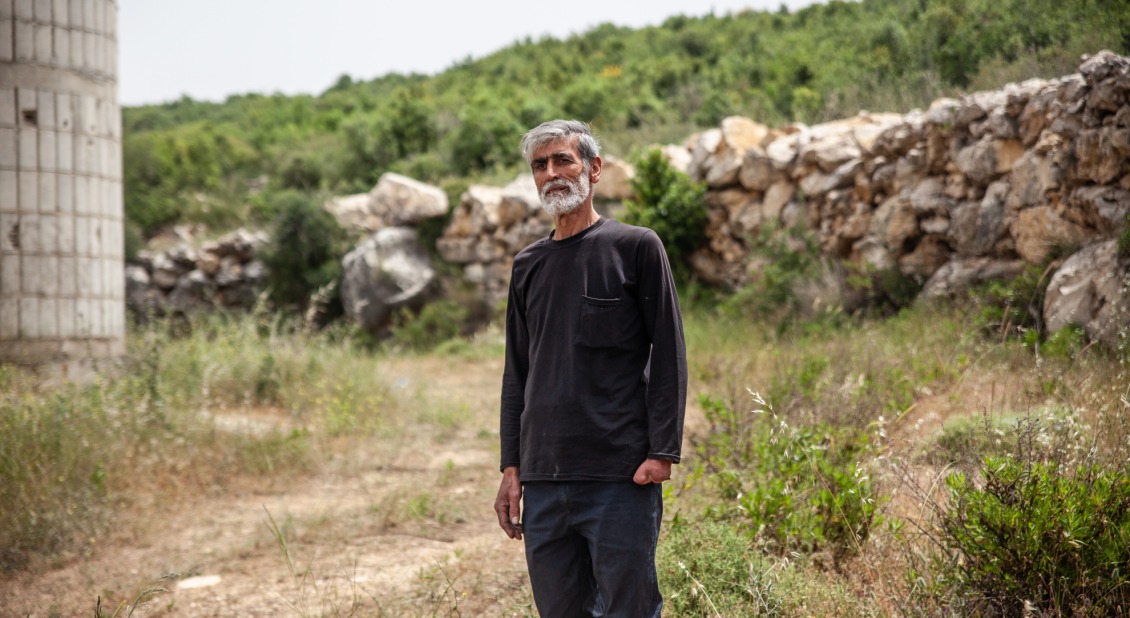
GIVE THIS RAMADAN

Six months after the November 2024 ceasefire in Lebanon, military activity continues in the south, the Bekaa Valley, and Beirut’s southern suburbs. Civilians remain at high risk, with recent attacks striking populated areas and threatening lives and livelihoods.
“One of the last air strikes was on May 8th,” explains Suzanne Takkenberg, Director of Action Against Hunger in Lebanon. “On that day, there were more than 19 attacks in the space of an hour in southern Lebanon, close to our distribution points, forcing us to temporarily halt our activities.”
According to the International Organisation for Migration, around 90,000 people remain internally displaced. Although over 900,000 people have returned back to their communities, many still can’t access their homes because of destruction or ongoing danger from unexploded ordnance. These families often live in borrowed apartments or temporary rentals.
Displaced families also face major challenges accessing clean water, sanitation, and healthcare. “Displacement, extraordinary increases in the cost of living, interruptions in food supply, loss of livelihoods, and damage to water and sanitation infrastructure are some of the barriers that prevent civilians from meeting their most basic needs,” says Suzanne Takkenberg.
This is the case for Ali*, who was displaced during the September 2024 escalation of conflict. After his home in Dahiye, Beirut’s southern suburbs, was destroyed, he had no choice but to flee and seek refuge. Like hundreds of others, Ali arrived at Bir Hassan School in southern Beirut, looking for a place to stay. Eight months later he’s still there, without a job, struggling to access food and clean water.

Border regions were among the hardest hit in October 2023. Mahmoud, an IDP from Odaisseh, which borders Israel, fled with his family to a shelter in Marwanieh, in the south of the country, shortly after the escalation of conflict started.
“We didn’t expect the conflict to last so long, so we didn’t bring many things with us,” Mahmoud explained.
The family attempted to go back to their home, but found it completely destroyed. “There is no life. There are no plants. There is nothing left,” he said.
Now he lives with his wife, teenage daughter, adult son, and baby in the former Montana Hotel in Marwanieh, alongside 93 other families.
“If humanitarian organizations stopped working here, it would be like leaving us at our mercy in a desert,” he shared.

According to the latest UN report on food security in Lebanon, nearly 1.2 million people are facing acute food insecurity, driven by the prolonged effects of conflict, ongoing displacement, and the country’s severe economic crisis.
Agricultural livelihoods have also been devastated. The World Bank estimates at least $11 billion in damage to the sector since October 2023. Many farmers in the southern Lebanon and the Bekaa Valley have been forced to abandon their land.
Jaafar, a farmer in Beit Lif near the Israeli border, said only 125 of the town’s 7,000 residents remain. Inflation, high fertilizer costs, destroyed infrastructure, and fuel shortages have made farming nearly impossible for Jaafar and others.
“Because of the drones, everyone is afraid,” shared Jaafar. “All the land and all the fields are destroyed in this area in the south. The trees have either been uprooted or damaged.”

“Many families are struggling to afford essential food items, highlighting widespread food insecurity,” explains Suzanne Takkenberg. “Urgent needs include finding emergency shelter, access to clean water, hygiene kits and sanitation facilities. Damage to water and sanitation infrastructures will make it very difficult for families to return home permanently, while the risk of waterborne diseases remains high. The efforts of humanitarian organisations are crucial to protect the well-being and dignity of those affected.”
Action Against Hunger has been working for months in the collective shelters to ensure that there is food, clean water, hygiene products and other essential items to maintain health and prevent disease outbreak.
Our teams are actively responding across Beirut, the Bekaa Valley, Baalbek-Hermel, Nabatiyeh, and the southern governorates, distributing critical items such as blankets, mattresses, water bottles, nutritional supplements, and offering vital health services.
In addition, we’re supporting the rehabilitation of agricultural lands and water points, while also providing cash assistance to help both displaced and returning families rebuild their lives.
*Names have been changed to protect the individuals’ identities for security reasons.
Join our community of supporters passionate about ending world hunger.